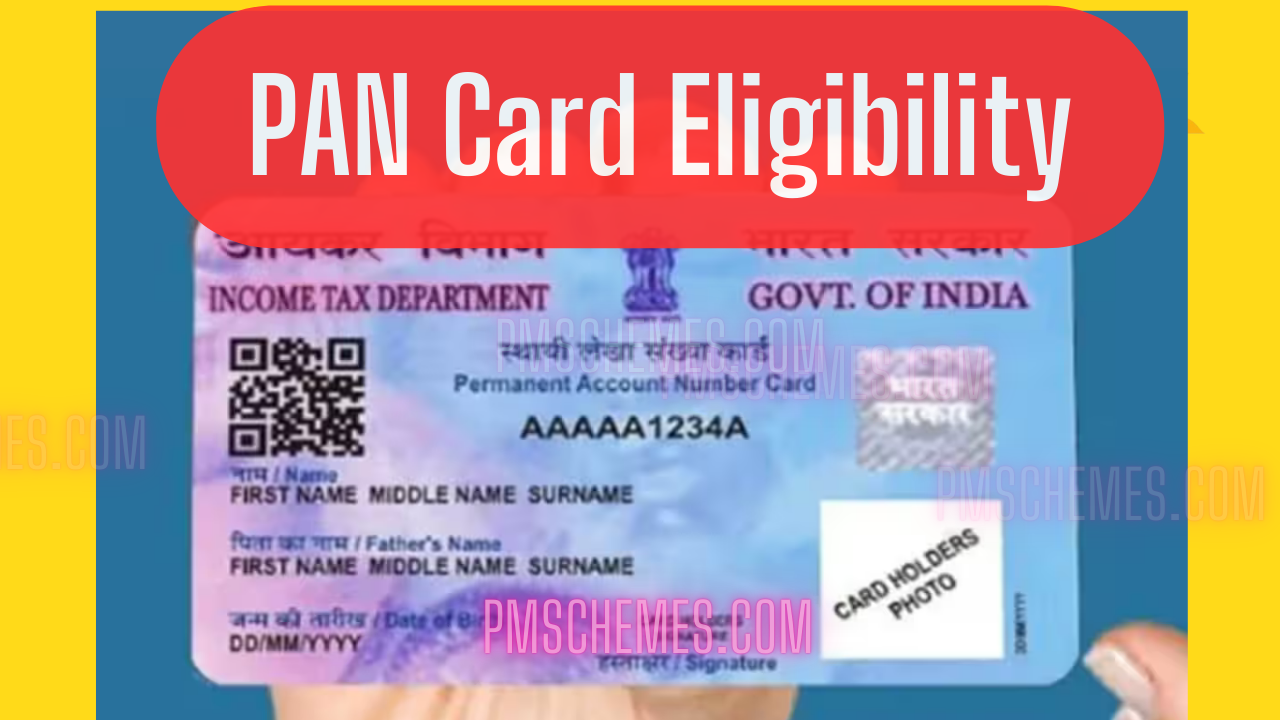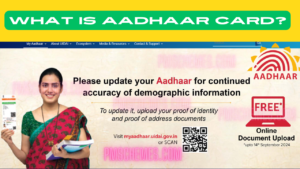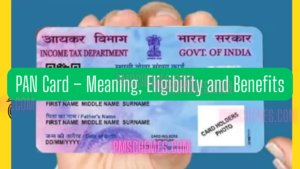Every individual or non-individual (including foreign citizens/entities) receiving taxable income in India must have a PAN card. Additionally, it is a necessary document for a number of financial activities. As a result, it is crucial that everyone submit a PAN Card application. To find out more about PAN Card Eligibility, keep reading.
Who can Apply for a PAN card?
To apply for a Pan Card, you must be at least eighteen years old. A PAN card can be applied for by anyone who meets the eligibility age requirements and belongs to one of the following categories:
- Adults: Anybody over the age of eighteen may apply for a PAN Card by providing proof of address and a valid ID.
- Minors: For a PAN card, minors may also apply. In this situation, the minors’ parents or guardians may fill out the application and apply for a Pan Card on their behalf.
- Foreign citizens: Eligible people include those who conduct financial activities needing a PAN or who live in India for more than 182 days within a fiscal year.
- Entities: A PAN card can be applied for by a variety of entities, including associations, businesses, trusts, Hindu Undivided Families (HUFs), and companies.
PAN Card Eligibility for Indian Citizens
For Indian citizens, companies, or entities to apply for a PAN card, they must utilize Form 49A. In addition to the required paperwork, the following eligibility requirements for a Pan Card must be met:
- Hindu Undivided Families (HUFs): A HUF is a separate legal company. Therefore, it is possible to perform financial transactions in the name of the HUF using the PAN card. The family’s head, or Karta, may apply for a PAN card on the family’s behalf by providing proof of identification, proof of address, and proof of DOB, along with the names and addresses of every HUF coparcener. The information is outlined in an affidavit that the Karta of the HUF is required to sign.
- Minors: Irrespective of the misconceptions regarding the minimum age limit, minors are eligible to apply for a PAN card. If they wish to make investments or serve as a nominee for a property, they must have a PAN card. Form 49A may be signed on behalf of minors by their parents. Along with the child’s certificate of birthdate, the parents’ proofs must be submitted with the form. The form has to have the minor’s Aadhaar number supplied.
- Individual: The applicant must be an Indian citizen with valid identification, residence, and date of birth proofs.
- Individuals with Mental Retardation: Individuals with mental retardation can also acquire a PAN if necessary. Their representatives must apply.
- Limited Liability Partnership: To get a PAN card, a copy of the Certificate of Registration issued by the Registrar of LLPs must be presented.
- Trusts: Trusts can apply for a PAN card by submitting a trust deed and a certificate of registration number provided by the charity commissioner.
- Partnership Firm:A copy of the partnership deed or the certificate of registration issued by the Registrar of Firms must be submitted by a partnership firm in order to obtain a PAN card.
- Companies: An organization can get a PAN card online. Businesses need to register with the state Registrar of Companies before requesting a PAN card. You must have a registration number. A copy of the Certificate of Registration, issued by the Registrar of Companies, must be submitted with the form.
- Local Authorities: Local governments can also apply for a PAN by presenting a copy of the agreement.
- Persons’ Associations: Registered associations may apply for a PAN card by providing a copy of their registration certificate.
- Artificial Judicial Person: By presenting a registration certificate or other official document as proof of their identification and place of residence, they can apply for a PAN card.

PAN Card Eligibility for Foreign Citizens
Foreign nationals or companies can apply for a PAN card using Form 49AA. Some basic requirements for obtaining a PAN card are as follows, which must be met in order to obtain one:
Foreign Citizens/Persons: In order to perform financial transactions in India, foreign nationals are required to apply for a PAN card and provide proof of date of birth, along with appropriate identification and address documentation.
Documents Required for PAN Card Application
For Indian Citizens and Entities –
- Identity Proof: A verified TIN (Taxpayer Identification Number) or CIN (Citizenship Identification Number) from the Ministry of External Affairs, the High Commission, or the Indian Embassy, in addition to a passport, PIO card, or OCI card. The applicant may also seek certification from the embassy of the country in which they now reside or from an authorized official of an overseas Indian-scheduled bank branch.
- Address Proof: Recognized TIN (Taxpayer Identification Number) or CIN (Citizenship Identification Number) by the Indian Embassy, High Commission, or Ministry of External Affairs for passengers traveling abroad. The applicant may also obtain confirmation of this from the Indian scheduled bank branch authorized officer overseas, the embassy of the country in which he or she resides, a bank statement, a certificate of registration, and a residency certificate.
For Foreigners –
The following documents must be submitted with PAN Form 49AA in order for them to apply for a PAN card.

- A copy of the registration certificate, completely certified by the Indian Embassy, High Commission, or Ministry of External Affairs, issued by the country where the entity is located. The applicant may also seek certification from the embassy of the country in which they now reside or from an authorized official of an overseas Indian-scheduled bank branch.
- A copy of the registration certificate that was obtained in India or authorization from Indian authorities to open a branch office there.
Benefits of PAN Card
A PAN Card is necessary for the following purposes:
- To submit income tax returns.
- It acts as an identification proof.
- To open a new bank account and depository account.
- To apply for a credit card and a bank loan.
- For the sale or acquisition of immovable property valued at Rs. 5 lakh or more.
- Any payment to a restaurant that exceeds Rs.25000.
- Depositing a sum of Rs.50000 or more into a bank account.
- For the buying or selling of an automobile or other vehicle (apart from a two-wheeler).
- Payments of Rs. 50000 or more for investment purposes.




